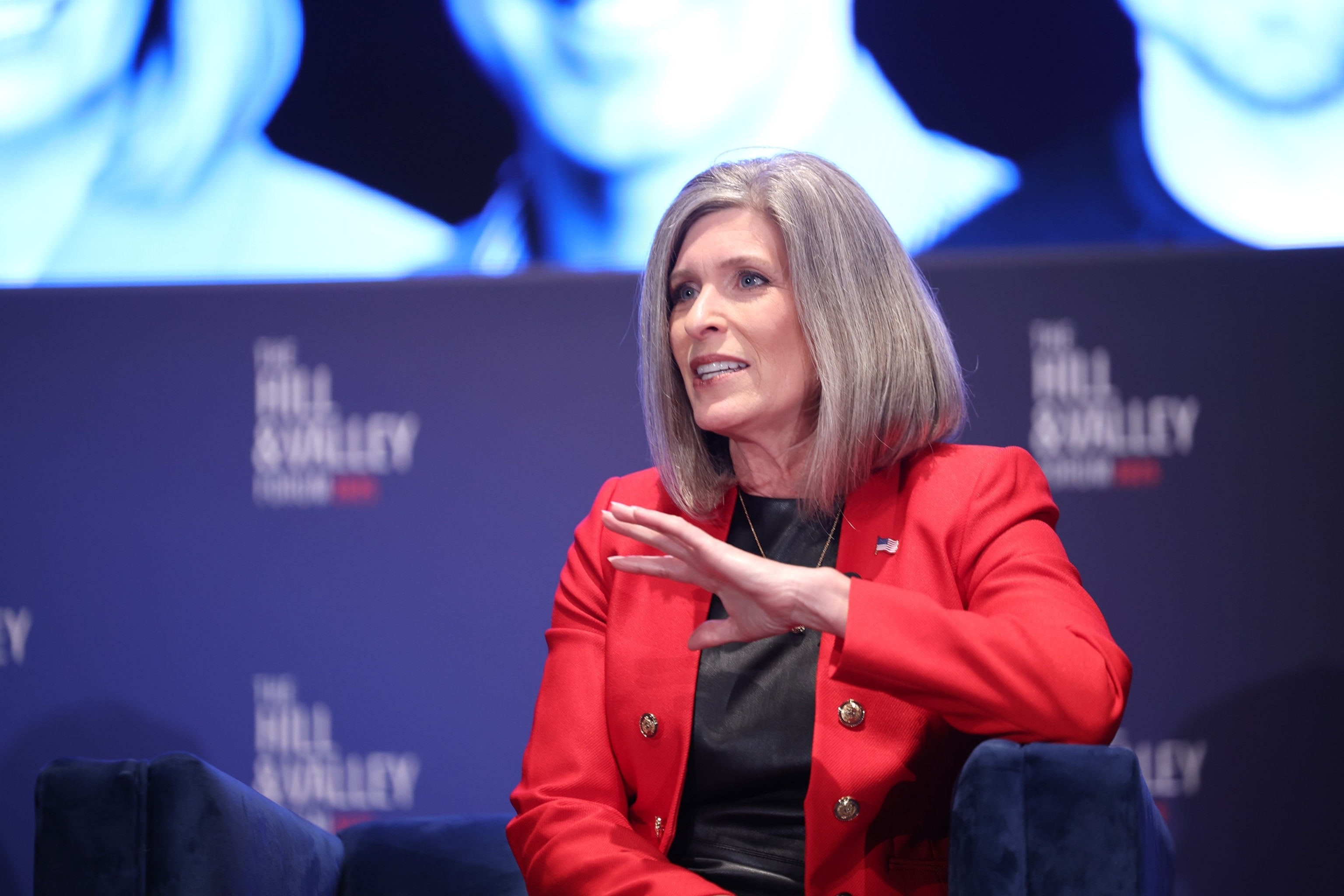Sen. Joni Ernst dismissed Medicaid cut concerns at an Iowa town hall, saying, “Well, we all are going to die.”

Butler County, IA (WE) — The clearest sign of how damaging the new Republican health care legislation could be came straight from a U.S. senator. During a town hall event in Iowa on Friday, an attendee shouted, “People will die” as Senator Joni Ernst (R-Iowa) defended what she called the “big, beautiful” bill. Ernst responded, “Well, we all are going to die.” Her casual dismissal captured what critics believe to be a dangerous indifference. If Republicans succeed, many fear people will die much sooner than they should.
The Republican Party is pushing forward with a reconciliation bill that would significantly cut Medicaid, affecting millions of Americans. Their latest tactic includes presenting these drastic changes as protections. In reality, the bill strips healthcare access from the vulnerable while rewarding the ultra-wealthy with tax breaks.
According to projections, the Republican-backed plan will remove healthcare coverage from around 15 million people by 2034. This rollback will result from stricter eligibility requirements for Medicaid, changes to Affordable Care Act marketplace policies, and the failure to renew subsidies for ACA plans.
The President Donald Trump described the proposal as targeting “waste, fraud, and abuse.” He insisted, “We’re not cutting anything meaningful. Just the waste.” But the bill reduces Medicaid funding by over $600 billion over the next decade. The supposed fight against fraud is largely administrative red tape, making it harder for eligible people to access benefits.
In a recent CNN interview, Trump’s budget director Russell Vought claimed, “No one will lose coverage.” He also suggested that public outrage was artificially created. “This bill will preserve and protect the social safety net,” he said. Yet independent analysts and the Congressional Budget Office report the opposite.
Vought and his allies say they’re eliminating waste. However, the bill introduces work requirements and paperwork burdens that will remove many people from the program. These measures won’t just prevent fraud. They’ll punish people who are already struggling.
Republicans like Rep. Anna Paulina Luna (R-Fla.) accuse Democrats of misleading the public. On X, she wrote that Democrats use “fear tactics, not the truth.” Luna added that claims of dismantling key programs were false and that Republicans are “safeguarding” them.
Rep. Mike Lawler (R-N.Y.) made similar arguments to the New York Post. He said the bill eliminates fraud while protecting vital services. He also posted that it “strengthens Medicaid” by removing “scam artists” and instituting work requirements for able-bodied adults without dependents.
However, data shows that most able-bodied adults on Medicaid already work. More than 60 percent are employed full or part time. Others cannot work due to disability, illness, caregiving responsibilities, or being in school.
Despite this, several Republicans have echoed the misleading “protecting Medicaid” narrative. Reps. Zach Nunn (R-Iowa), Tom Kean Jr. (R-N.J.), Ryan Mackenzie (R-Pa.), and Rob Wittman (R-Va.) used similar language in their public statements.
Rep. Don Bacon (R-Neb.) tweeted that Republicans had “protected Medicaid for those who need it.” He claimed that work requirements for able-bodied adults without children would return 4.8 million people to the workforce. In reality, that number represents how many people would lose Medicaid coverage, according to the Congressional Budget Office.
Read More:
- Federal Court Halts Ruling Against Trump’s Tariffs—for Now
- Judge Extends Block on Trump’s Harvard Student Ban
- New Details Emerge About Alaska-Based Owner of Jet That Crashed in San Diego
On NBC News’ Meet the Press, House Speaker Mike Johnson (R-La.) downplayed the effects. He said, “This is minor enforcement of this policy, and it follows common sense.” He also argued that “4.8 million people will not lose their Medicaid unless they choose to.” Johnson claimed that voters are rejecting the Democratic narrative.
Yet even within the Republican ranks, dissent exists. Sen. Josh Hawley (R-Mo.) called the bill’s Medicaid provisions “politically suicidal.” Sen. Rand Paul (R-Ky.) said the cuts were a “bad strategy” for addressing the debt. He also pointed out that the bill would actually increase the federal deficit.
Critics warn that the GOP’s plan, if passed, will have devastating consequences for health care access. The rhetoric around “safeguards” and “common sense” hides a harsh reality. Millions will lose coverage. People without documents are being scapegoated, even though they are already ineligible for most Medicaid programs. Administrative obstacles will delay or deny care for those in need.
And when challenged, some lawmakers offer little comfort. As Sen. Ernst said, “We all are going to die.” But her audience knew that’s not the point. It’s about whether people get to live with dignity and access to care for as long as they can.
The legislation is moving forward despite widespread backlash. Experts, advocates, and even some conservatives warn that the long-term damage could be severe. For many, the issue is personal. Losing health coverage means untreated illnesses, skipped medications, and avoidable deaths.
The Republican message is that the cuts are necessary and justified. But voters are increasingly skeptical. Medicaid is popular across the political spectrum. Efforts to dismantle it, even under the guise of reform, carry political risks.
As the bill advances through the Senate, the stakes remain high. The GOP is trying to reshape the conversation, insisting they’re fixing problems. But to many Americans, the result feels like a punishment for being poor or sick.
Even if the legislation stalls, the conversation has shifted. Republicans have revealed their priorities. And in moments like Ernst’s town hall, they’ve shown how little some seem to care about the consequences.
In the coming months, the outcome of this fight will shape the health and survival of millions. The question is whether voters will remember who tried to protect their care—and who tried to take it away.